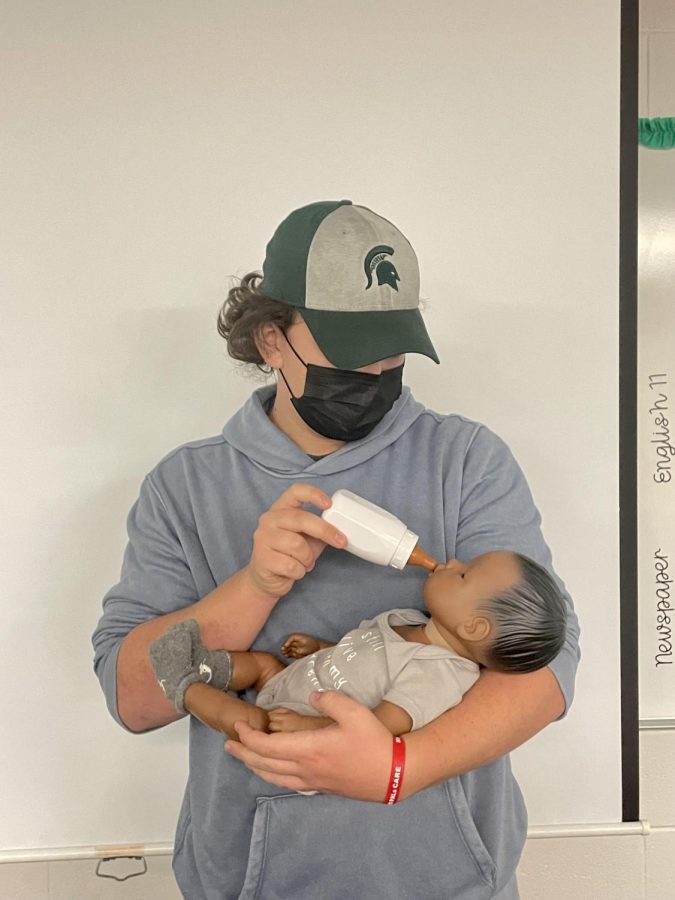The Babies Are Back
Robotic babies are back hanging out around Grand Ledge!
Senior Josh Looney feeds one of the robotic babies. The babies took over Grand Ledge High School for a few weeks.
November 9, 2021
It has been common for years now across Grand Ledge High School to see robotic babies in classrooms, in the cafeteria, and even at sporting events. Mrs. Zeko teaches Parent and Child A and B, an elective that Sophomores, Juniors, and Seniors have the exciting opportunity to take. This class teaches students about child growth and development from conception to birth.
“My favorite part of the project was getting a viewpoint of what it is like to actually take care of a child without having the major responsibility of taking care of a real baby,” stated Alyssa Costello.
Many students sign up for the class for the sole purpose of receiving one of these robotic babies. They cry, eat, sleep, and wake their guardian up at all hours of the night just like a real baby, but for only a shortened time span of just five days. The baby can interrupt classroom instruction, causing some teachers to dislike when the babies return. There are students as well that struggle enjoying the weeks when the babies are out, due to all of the interruptions
Most babies survive the length of the project, but unfortunately, there are always a few that do not come out the other side alive. Olivia Schelling is one example of a parent whose baby, Lincoln, did not survive, due to circumstances outside of her control. She had a babysitter watching her child while at a football game, and in the hours she was away, said babysitter repeatedly head rocked Lincoln multiple times.
Headrocking is one of the most common ways to fail the baby project. Bending or dropping the neck too far in any direction can cause a headrock.
“It was pretty hard and very tiring. The baby got annoying really quickly” commented Katie Schupbach.
A lot of students do end up enjoying the experience along with the class, regardless of the difficulties it can cause. It gives students more insight into what life is like with a child. They have to manipulate their days and plans in order to care for said child. It also allows students to learn the difficulties of parenting.


